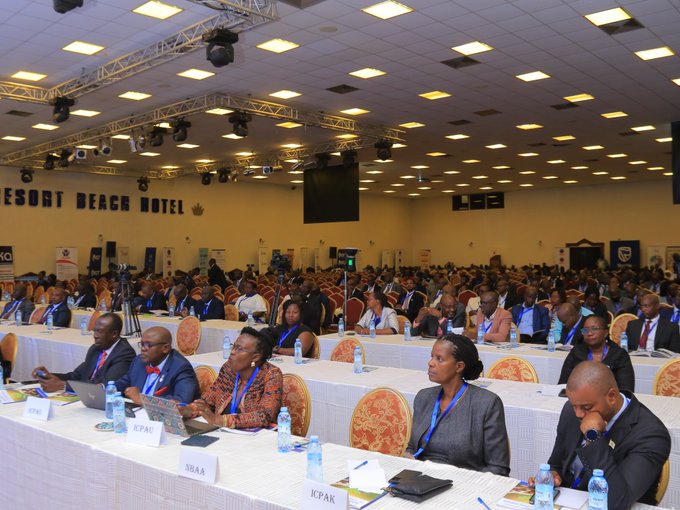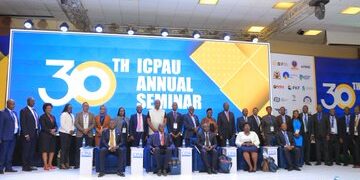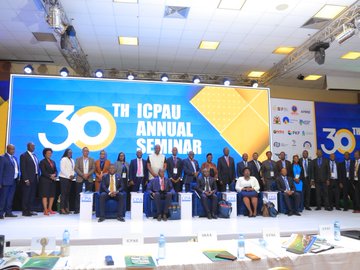Entebbe — The Institute of Certified Public Accountants of Uganda (ICPAU) has officially launched Uganda’s Roadmap for International Financial Reporting Standards (IFRS) Sustainability Disclosure Standards, aligning the country with the International Sustainability Standards Board’s (ISSB) IFRS S1 and S2.
The launch took place during the 30th ICPAU Annual Seminar at the Imperial Resort Beach Hotel in Entebbe, marking a historic milestone for sustainability reporting in Uganda.
Speaking at the opening of the seminar, CPA Timothy Ediomu, President of ICPAU, revealed that Uganda had adopted the ISSB’s IFRS Sustainability Disclosure Standards for national use on 4th September 2024.

“This ensures that new or amended standards will be applied consistently while allowing for jurisdictional modifications when necessary, guided by the ICPAU Council,” Ediomu explained. “Today’s launch solidifies Uganda’s commitment to transparency, accountability, and long-term sustainability in corporate reporting.”
The Roadmap, developed through extensive public consultations and approved by the ICPAU Council, provides a phased approach to implementation, including readiness tests, transition guidance, permanent reliefs, assurance frameworks, and capacity-building mechanisms for organisations.
“Uganda now joins the frontrunners in sustainability compliance,” Ediomu added. “This milestone aligns with our seminar theme: Positioning Professionals for Sustainable Impact and ensures that our profession remains at the cutting edge of global best practices.”
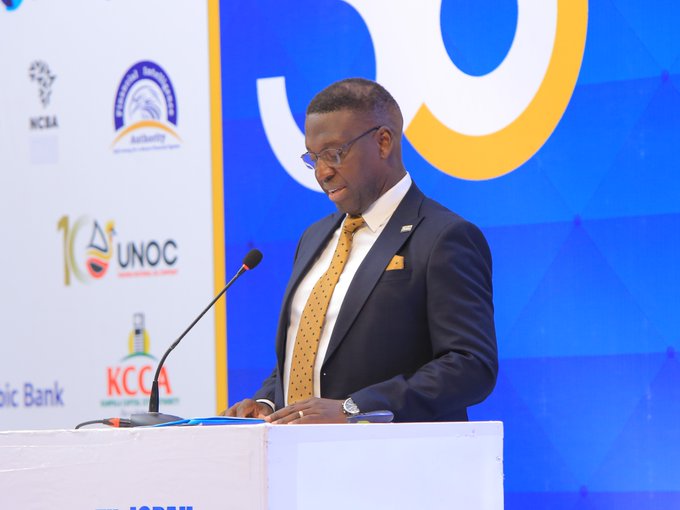
Ediomu also congratulated the East African Community Institutes of Accountants on recent leadership changes, affirming ICPAU’s commitment to regional collaboration. “Pamoja tuijenge Afrika Mashariki — together, let’s build East Africa,” he said, emphasising the need for collective action on sustainability and professional standards.
Reflecting on the seminar’s growth since its humble beginnings in 1996, ICPAU’s first President, CPA George William Egaddu, shared his memories: “From fewer than 50 attendees in Mbarara to over 1,500 participants today, it’s inspiring to see how far the profession has come in 30 years.”
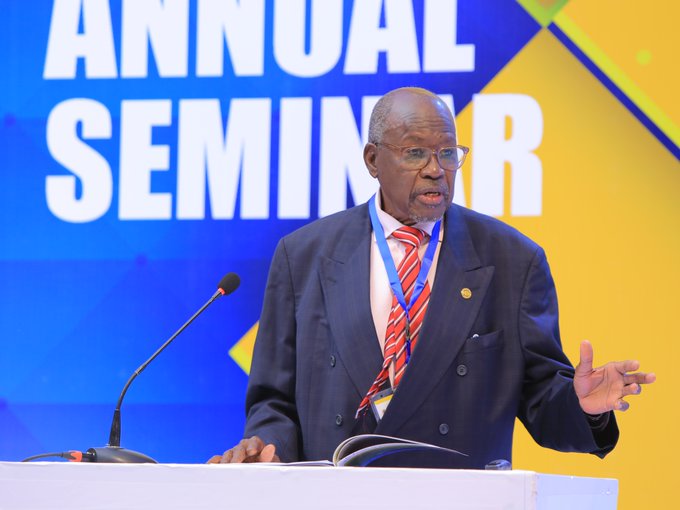
The first presentation at the seminar was delivered by Ms. Catherine Adengo, Head of Sustainability, ESG & CSI at Stanbic Bank Uganda, who spoke on Corporate Sustainability Reporting: Driving Transparency in ESG.
“Corporate sustainability reporting is not just about ticking boxes; it’s about embedding ESG into business DNA,” Adengo stressed. “Institutions have shown strong commitment through consultations, and this adoption will drive accountability, transparency, and better decision-making across sectors.”
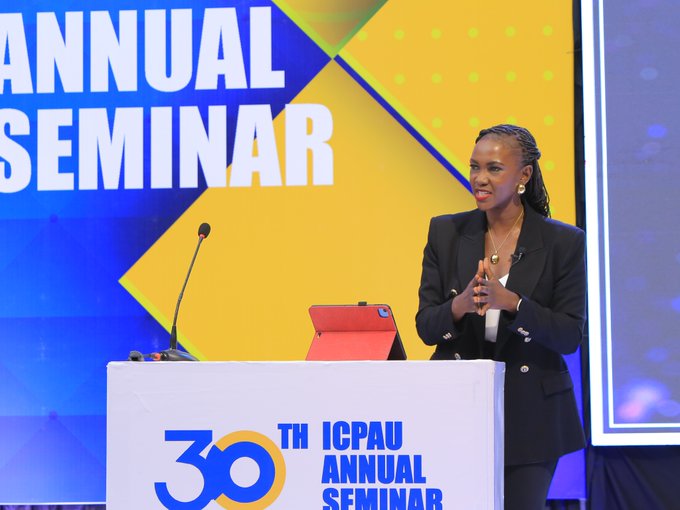
She further highlighted the role of data-driven ESG reporting in linking environmental and social risks to financial performance: “Reliable data ensures accountability, drives transparency, and makes sustainability reporting as credible as financial reporting.”
Adengo warned businesses to consider climate risks seriously: “Climate change creates physical risks that disrupt industries. Transition risks like new regulations or carbon taxes can also affect costs — but they also create opportunities for innovation, such as electric mobility.”

Other key speakers included CPA Charles Lutimba, ICPAU’s Director of Standards & Regulation, who shared updates on the accountancy profession, and CPA Derick Nkajja, CEO of ICPAU, who welcomed delegates and praised regional Professional Accountancy Organisations for their solidarity.
The seminar, now Uganda’s largest gathering of accountants with nearly 2,000 participants, both physical and virtual, continues over the next days with more sessions on sustainability, innovation, and professional excellence.
